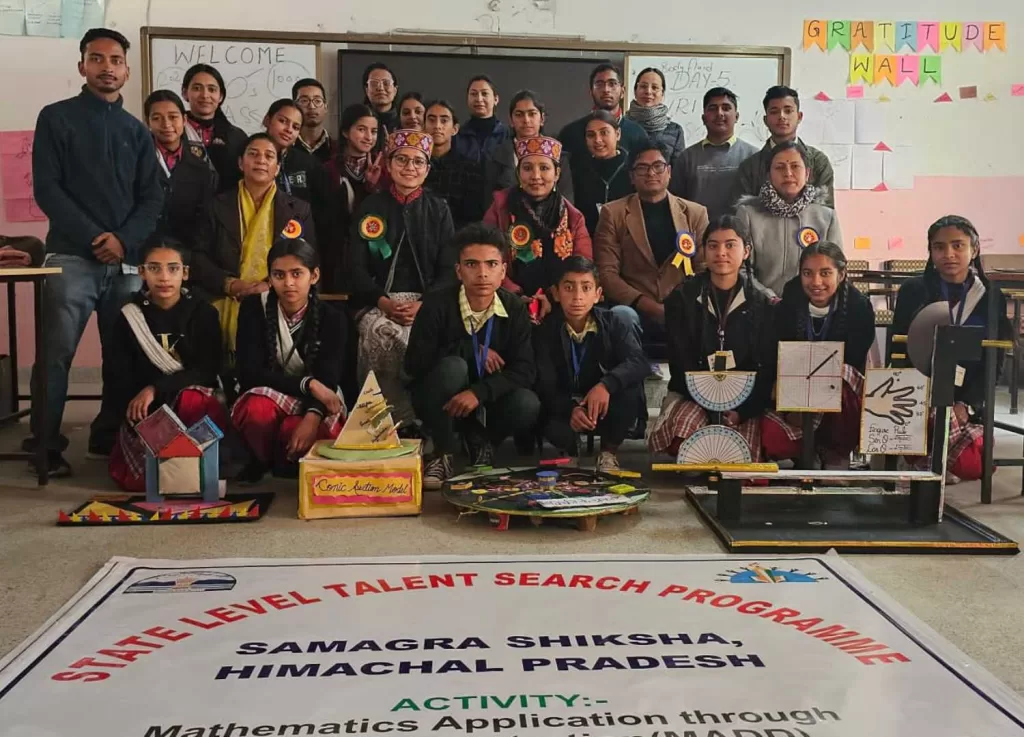One December morning, our team embarked on a journey to Kullu to assess the talent in the State-level talent search for 2023-24. Organized annually by Himachal Pradesh, this event aims to discover talented students in Maths, Science, Environmental Science, and Language.
The talent search begins at the school level, then progresses through block, district, and state levels. At each stage, students compete, and only the best move forward. In the final round, there were 48 teams, across these disciplines, each comprising one to three students, with 15 minutes for presentation and Q/A.
Our team split into pairs to assess the presentations on Maths and Science. Teams from EarthJust Ecosystems and Avanti Fellows joined to assess Environmental Science and Language presentations, respectively.
During the event, the team was struck by the diverse emotions like fear, nervousness and excitement, the determination of students. Prapti found immense hope and encouragement on seeing that a majority of participants in the event were girls.
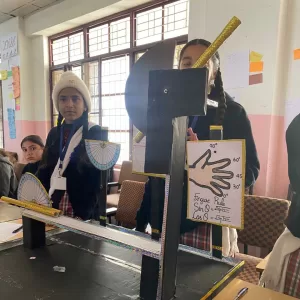
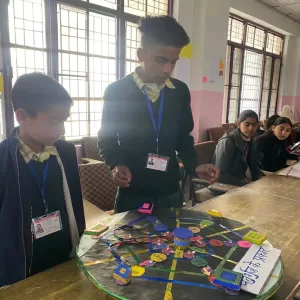
Reflecting on the event, Mudit noted that districts like Shimla, Sirmaur, and Una stood out for their innovative ideas. He was particularly impressed by a group of boys who developed an alarm-system to protect crops, drawing from their personal experiences. Another standout was a girl from Shimla who confidently presented on evolution, showcasing deep understanding.
However, Mudit expressed concerns about the dependency on textbooks and the overuse of thermocol, especially and quite ironically for presentations based on Environmental Science. In the feedback to students, he also emphasized the importance of practical relevance and understanding over mere completion. Kavita and Priyanka echoed these sentiments, noting that some students struggled to explain concepts and failed to see the real-world applications of Mathematics.
This raises important questions about the purpose of such events. Are we rewarding creativity and practical understanding, or just completion? Are we providing equal opportunities for all students to participate and excel? In our classrooms, what are we focusing on – rote memorisation or conceptual understanding?
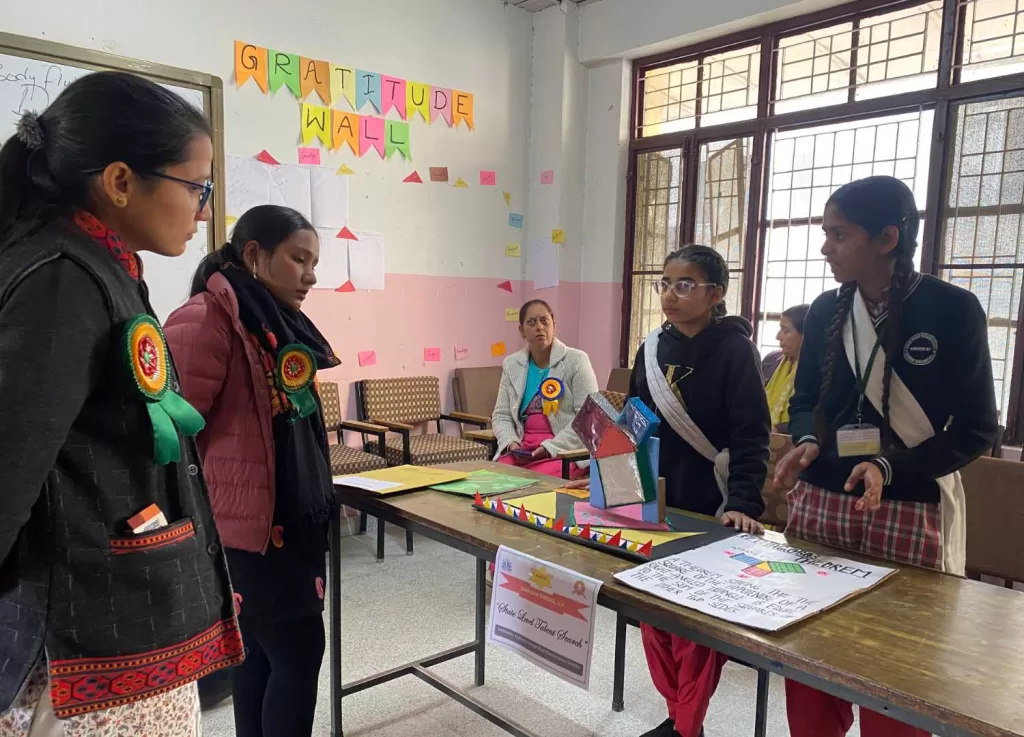
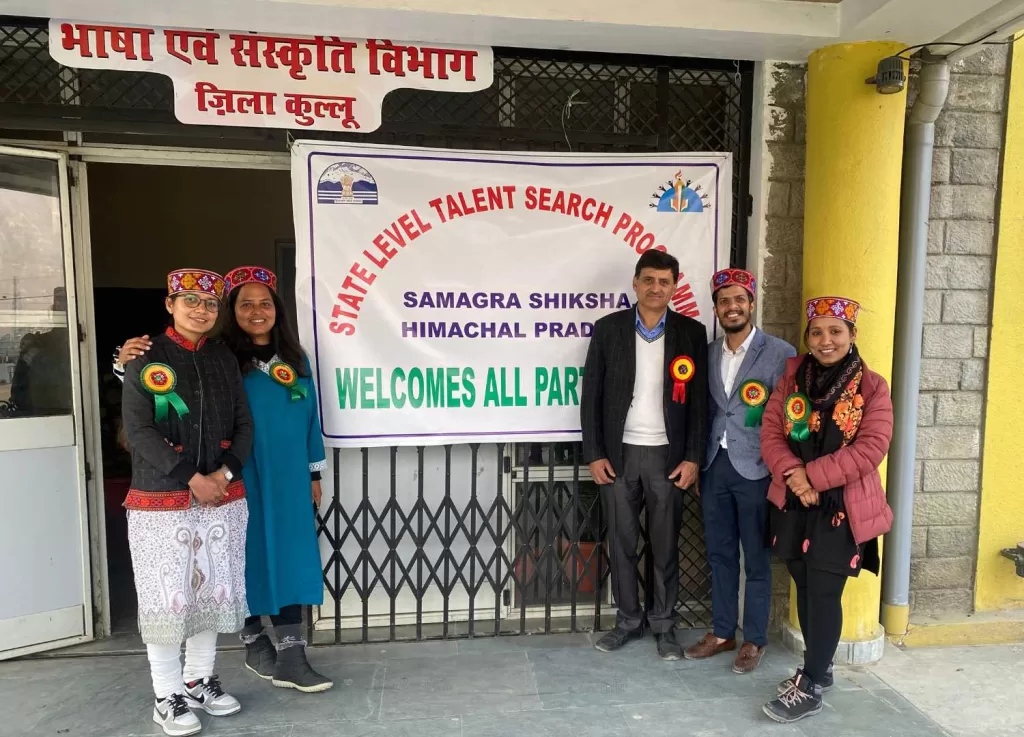
Kavita highlighted the need for inclusivity, questioning why only a few students participated and fewer showcased innovation. This prompts us to rethink our education system’s effectiveness in nurturing talent and critical thinking.
In J. Krishnamurthy’s words, “…the feeling of responsibility implies responsibility for everything, not in a direction, in any one particular direction. Responsible for education, responsible for politics, responsible for the way I live, to be responsible for my behaviour.”
These words are a necessary reminder that as members of this community, we must feel responsible and actively get involved in supporting students’ learning and development. As organizers, we must use these events to foster curiosity, experimentation, and exploration.
In conclusion, embracing our responsibility towards education, society, and the community at large, we need to rethink our actions and reflect on what we are currently doing to fulfill this responsibility? And what more can we do to empower the next generation of innovators and problem solvers?
